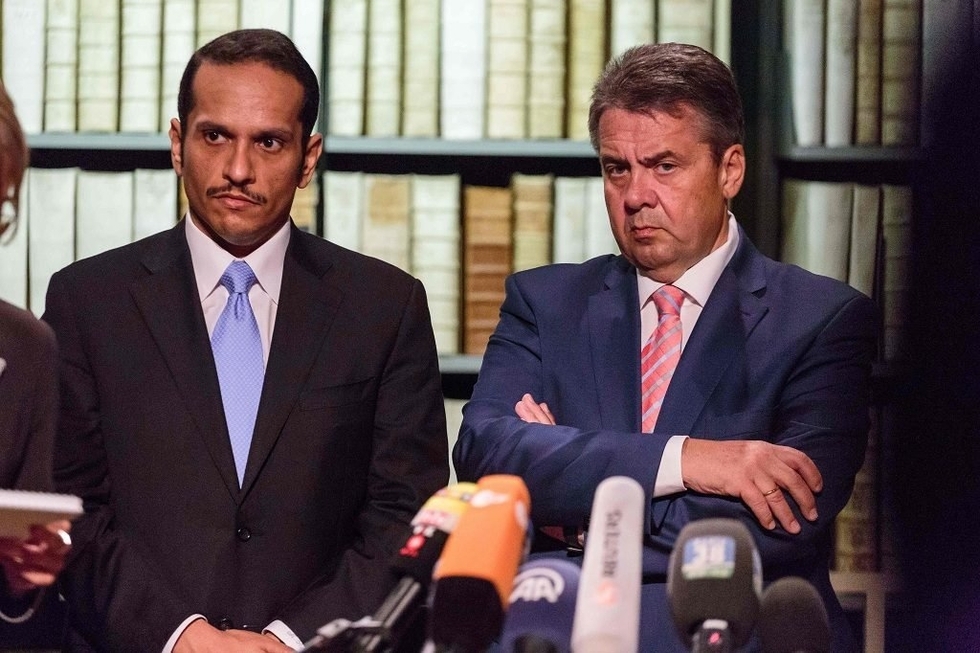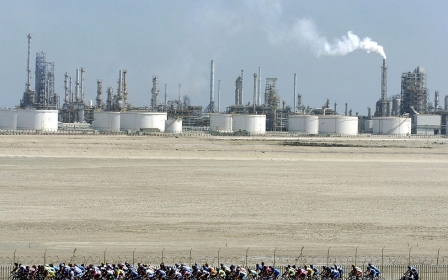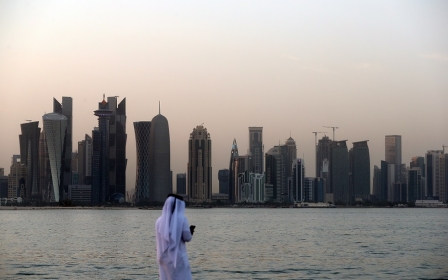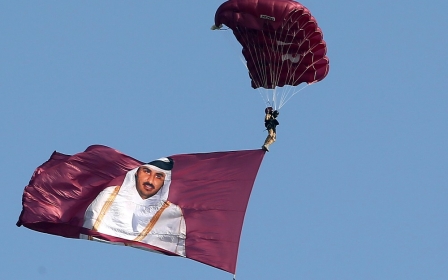Gulf crisis: Qatar slams 'unrealistic' demands as deadline looms

Qatar's foreign minister described Saudi Arabia and its allies latest set of demands against the energy-rich Kingdom as impossible to meet on Tuesday.
The comments were made at a joint press conference with the German Foreign Minister as the Gulf diplomatic spat continues to deepen.
"The list is unrealistic and is not actionable," Sheikh Mohammed bin Abdulrahman Al-Thani told reporters in Doha.
"It's not about terrorism, it's talking about shutting down the freedom of speech," he said at a joint press conference after talks with German counterpart Sigmar Gabriel.
"The state of Qatar has adopted a very constructive attitude since the beginning of the crisis. We are trying to act mature and discuss the matter."
"Qatar has shown restraint in reacting to the blockade," Gabriel told reporters at a news conference with his Qatari counterpart. "We hope others will respond in a similar spirit."
Saudi Arabia, the United Arab Emirates, Bahrain and Egypt - which accuse Qatar of supporting extremism - gave Doha an extra 48 hours to meet their demands after an initial 10-day deadline expired on Sunday.
These demands included Doha closing broadcaster Al-Jazeera and Middle East Eye, as well as downgrading diplomatic ties with Iran.
Middle East Eye has denied that it was supported financially by Qatar or backed by any other state entity.
Qatar officially handed its response to Kuwait on Monday, which is mediating in the dispute, but its contents have not been disclosed.
Sheikh Mohammed refused to give any further details on Tuesday, but said Doha was looking for a solution to the month-long crisis based on dialogue.
Earlier British Prime Minister Theresa May had also spoken to Saudi Crown Prince Mohammed Bin Salman urging them to reduce tensions in the Gulf.
In a statement, a Downing Street spokesperson said May raised the ongoing diplomatic crisis in the Gulf with Prince Mohammed bin Salman of Saudi Arabia during a phone call on Monday.
“The prime minister raised the issue of the ongoing isolation of Qatar in the region. She reiterated the need for all sides [to] take urgent steps to de-escalate the situation and restore Gulf Cooperation Council unity,” the statement said.
May’s call to reduce tensions is essentially a restatement of her position from mid-June when she also called for a de-escalation of tensions in the region.
In March, May announced that the United Kingdom and Qatar had established a joint economic and trade committee to pave the way for a post-Brexit trade agreement, part of a larger effort to expand global trade ties.
New MEE newsletter: Jerusalem Dispatch
Sign up to get the latest insights and analysis on Israel-Palestine, alongside Turkey Unpacked and other MEE newsletters
Middle East Eye delivers independent and unrivalled coverage and analysis of the Middle East, North Africa and beyond. To learn more about republishing this content and the associated fees, please fill out this form. More about MEE can be found here.




